 January 2016 in “Springer eBooks”
January 2016 in “Springer eBooks” New materials and methods could improve skin healing and reduce scarring.
79 citations,
December 2017 in “Cosmetics” Effective sunscreen formulations can reduce skin absorption and enhance protection.
65 citations,
August 2013 in “Acta Biomaterialia” The new matrix improves skin regeneration and graft performance.
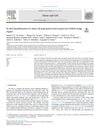 5 citations,
December 2017 in “Tissue and cell/Tissue & cell”
5 citations,
December 2017 in “Tissue and cell/Tissue & cell” Researchers found stem cells in dog hair follicles using specific markers.
 84 citations,
July 2008 in “Aaps Pharmscitech”
84 citations,
July 2008 in “Aaps Pharmscitech” Ethosomes improve finasteride delivery through skin for hair loss treatment.
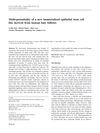 34 citations,
June 2008 in “In vitro cellular & developmental biology. Animal”
34 citations,
June 2008 in “In vitro cellular & developmental biology. Animal” Scientists created a long-lasting stem cell line from human hair that can turn into different skin and hair cell types.
 January 2024 in “Biochemistry Research International”
January 2024 in “Biochemistry Research International” Compounds from Ziziphus spina-christi roots show strong antibacterial and antioxidant potential.
 30 citations,
April 2018 in “Experimental Dermatology”
30 citations,
April 2018 in “Experimental Dermatology” The article concludes that developing in vitro models for human hair structures is important for research and reducing animal testing, but there are challenges like obtaining suitable samples and the models' limitations.
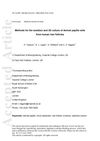 55 citations,
April 2017 in “Experimental Dermatology”
55 citations,
April 2017 in “Experimental Dermatology” The document describes a way to isolate and grow human hair follicle cells in 3D to help study hair growth.
 July 2013 in “Science-business Exchange”
July 2013 in “Science-business Exchange” Blocking SEPT4 might help heal wounds and regrow hair faster.
 October 2015 in “Journal of Bioresource Management”
October 2015 in “Journal of Bioresource Management” Growing hair cells in the lab from plucked hairs could lead to a new, less invasive, and cheaper baldness treatment.
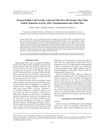 22 citations,
October 2012 in “Cell Transplantation”
22 citations,
October 2012 in “Cell Transplantation” Cells treated with Wnt-10b can grow hair after being transplanted into mice.
 18 citations,
March 2014 in “Drug Development and Industrial Pharmacy”
18 citations,
March 2014 in “Drug Development and Industrial Pharmacy” New gel formulas without ethanol and propylene glycol, containing a minoxidil-methyl-β-cyclodextrin complex, have been created for treating hair loss.
 28 citations,
March 2014 in “International Journal of Nanomedicine”
28 citations,
March 2014 in “International Journal of Nanomedicine” New lipid nanoparticles show promise for delivering hair loss treatments but need improvement for better skin penetration.
 26 citations,
March 2013 in “Journal of Biomedical Materials Research Part A”
26 citations,
March 2013 in “Journal of Biomedical Materials Research Part A” Researchers created a 3D hydrogel that mimics human hair follicles, which may help with hair loss treatments.
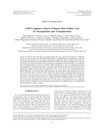 10 citations,
December 2011 in “Cell Transplantation”
10 citations,
December 2011 in “Cell Transplantation” Researchers successfully grew human hair follicle cells that could potentially lead to new hair loss treatments.
 March 2022 in “Journal of health sciences and medicine”
March 2022 in “Journal of health sciences and medicine” Azelaic acid and permethrin both effectively kill the skin mite Demodex folliculorum in a lab setting.
 8 citations,
February 2022 in “Molecules”
8 citations,
February 2022 in “Molecules” Asparagus racemosus root extract reduced sebum and pore size in men but not in women.
 4 citations,
January 2014 in “Dermatology”
4 citations,
January 2014 in “Dermatology” A woman with acne and baldness was found to have a rare ovarian condition but successfully had a child through fertility treatment.
 66 citations,
May 2012 in “Scientific Reports”
66 citations,
May 2012 in “Scientific Reports” Scientists successfully created and transplanted bioengineered hair follicles that function like natural ones, suggesting a new treatment for hair loss.
2 citations,
June 2013 in “In Vitro Cellular & Developmental Biology - Animal” Melanocytes from human fetal hair follicles were successfully cultured, showing potential for hair disease research and clinical use.
5 citations,
December 2020 in “Bioengineering & translational medicine” Researchers used a laser to create advanced skin models with hair-like structures.
 49 citations,
February 2008 in “Stem Cells”
49 citations,
February 2008 in “Stem Cells” Wnt10b helps blood stem cells grow after injury.
 23 citations,
December 2001 in “Lasers in Surgery and Medicine”
23 citations,
December 2001 in “Lasers in Surgery and Medicine” Permanent hair removal is hard, but using longer laser pulses at lower power might improve results.
 97 citations,
September 2016 in “Reviews in Endocrine and Metabolic Disorders”
97 citations,
September 2016 in “Reviews in Endocrine and Metabolic Disorders” The sebaceous gland has more roles than just producing sebum and contributing to acne, and new research could lead to better skin disease treatments.
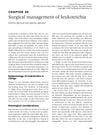
Surgical repigmentation can permanently restore color to white hair in vitiligo patients.
Mouse hair follicles grow best in a special medium, especially when cut and from adult mice.
2 citations,
November 1992 in “Journal of dermatology” Hair cells grown in a lab showed specific hair proteins.
 32 citations,
March 2014 in “PLOS ONE”
32 citations,
March 2014 in “PLOS ONE” Mice lacking fibromodulin have disrupted healing patterns, leading to abnormal skin repair and scarring.
 321 citations,
December 2009 in “Journal of Dermatological Science”
321 citations,
December 2009 in “Journal of Dermatological Science” Dermal cells are key in controlling hair growth and could potentially be used in hair loss treatments, but more research is needed to improve hair regeneration methods.
























